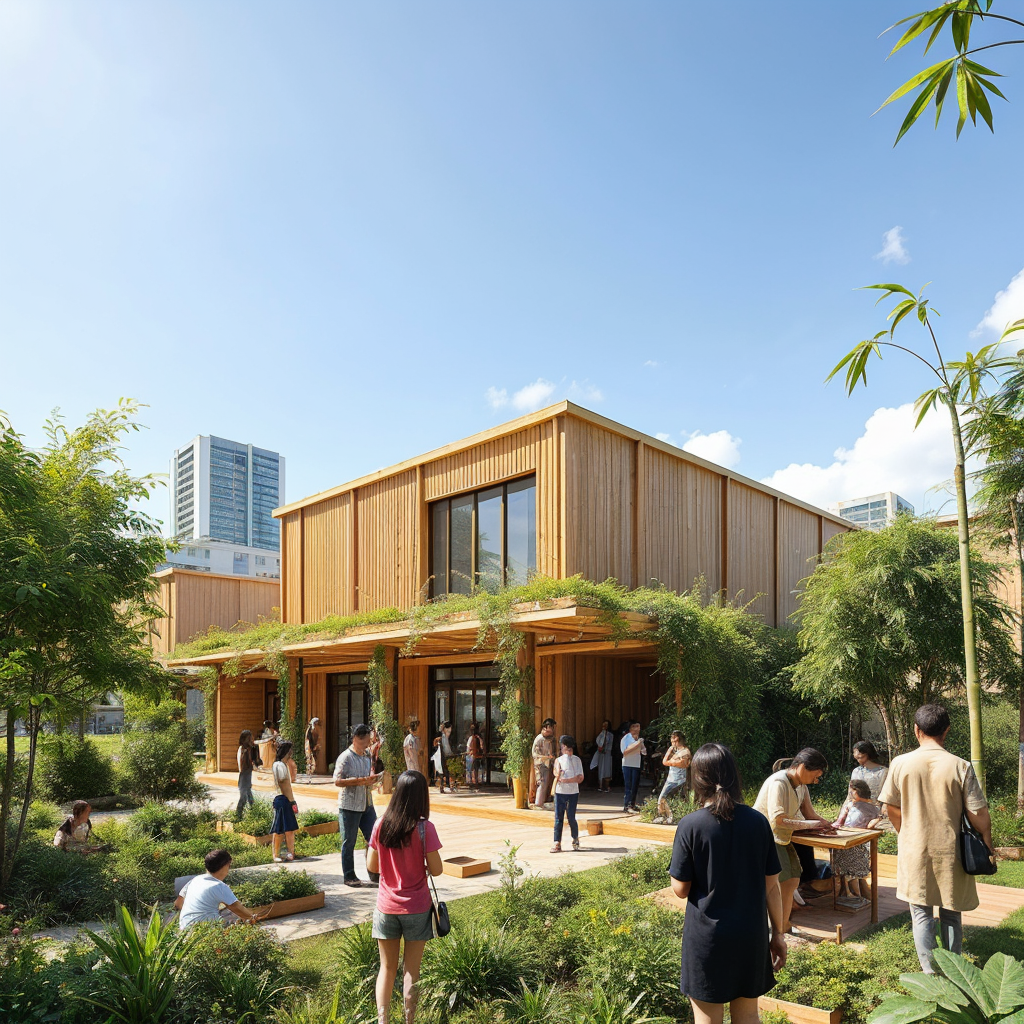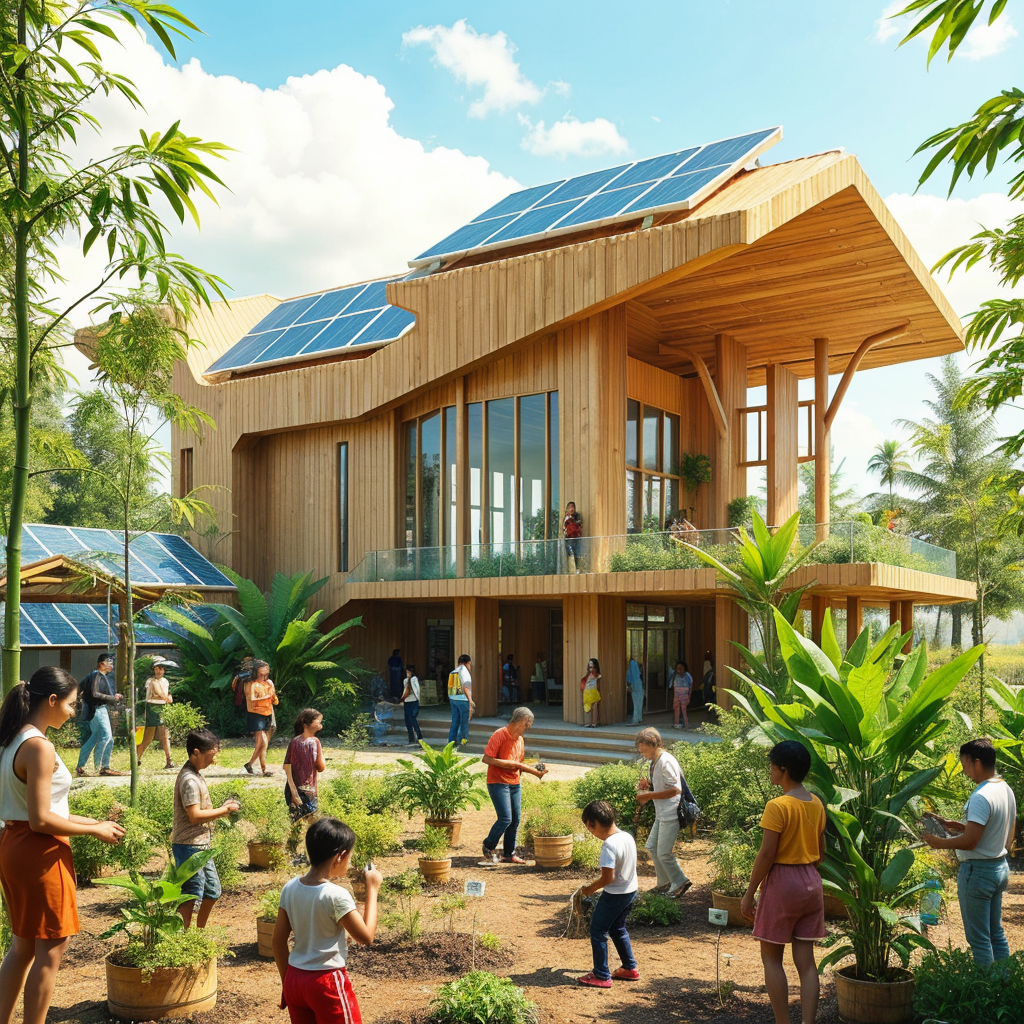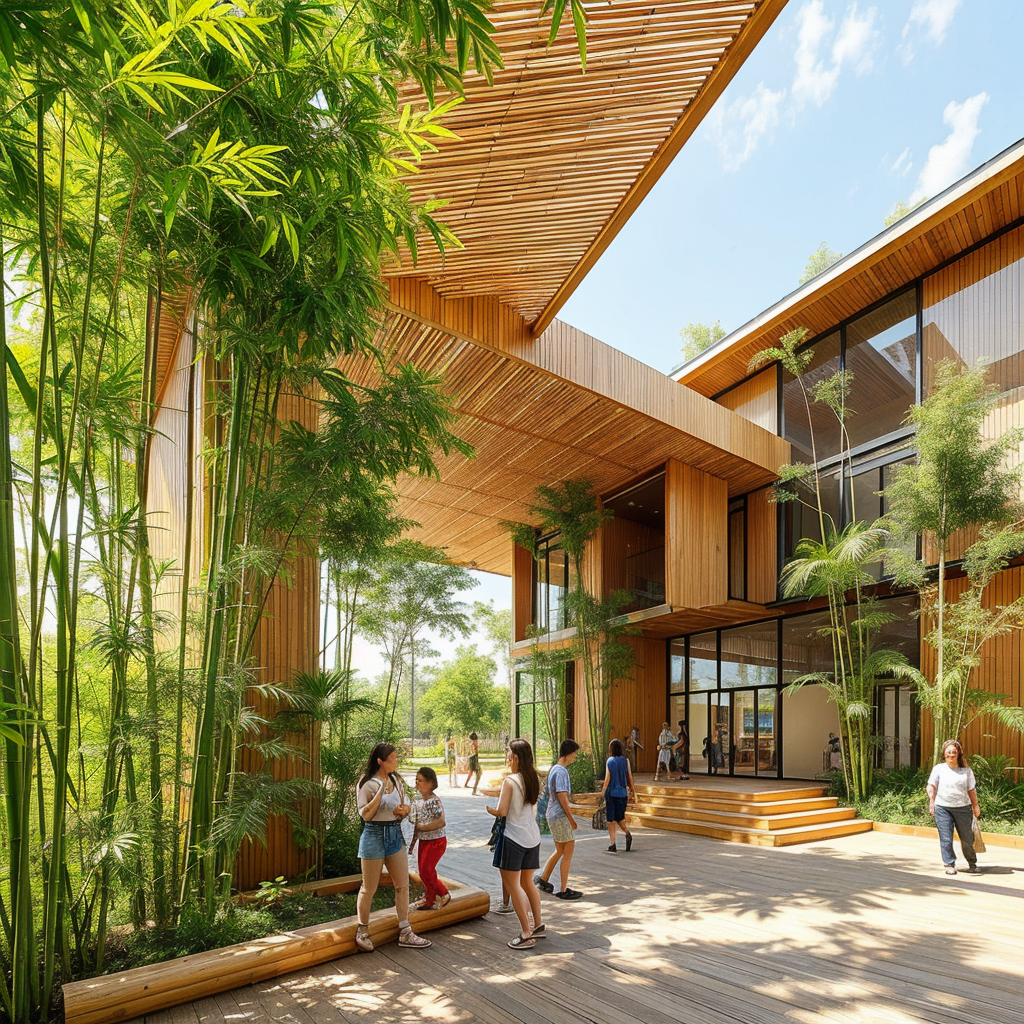In the face of escalating environmental challenges, industries across the globe are reevaluating their practices to prioritize sustainability. The construction sector, responsible for approximately 38% of global CO2 emissions, has a pivotal role to play in reducing its environmental impact. Sustainable building materials, like laminated bamboo lumber, have become essential in achieving this shift. Bamboo, known for its rapid renewability and low carbon footprint, presents a powerful alternative to conventional materials, aligning with global sustainability initiatives like the United Nations’ Sustainable Development Goals (SDGs).
In this blog post, we’ll delve into how laminated bamboo lumber, particularly sourced from Bamdura, a leader in sustainable bamboo products, contributes to achieving SDGs. We will explore bamboo’s incredible renewability, carbon sequestration potential, and how Coastal Custom Products partners with Bamdura to deliver eco-friendly building solutions to the U.S. market. Additionally, we will examine how this material supports SDGs related to climate action, resource efficiency, and sustainable urban development.
Understanding the Sustainable Development Goals (SDGs)
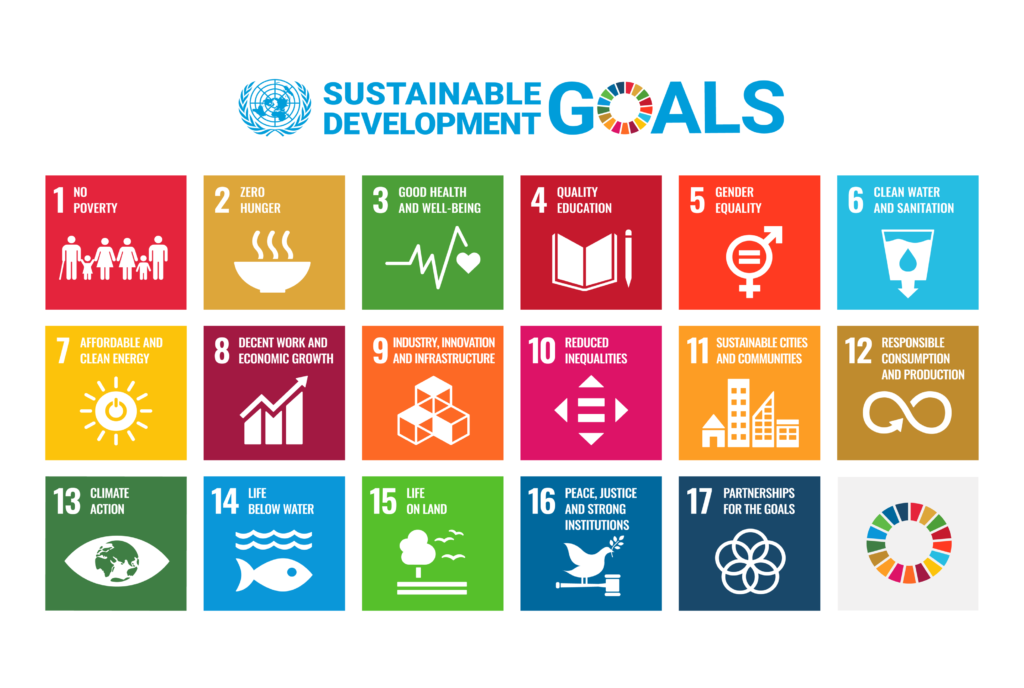
The United Nations’ Sustainable Development Goals (SDGs) are a universal blueprint to address global challenges, including poverty, inequality, and environmental degradation. Several of these goals, especially SDG 9 (Industry, Innovation, and Infrastructure) and SDG 11 (Sustainable Cities and Communities), directly relate to the construction industry’s need to innovate and embrace sustainable practices.
SDG 12 (Responsible Consumption and Production) emphasizes the need to reduce waste and promote resource efficiency. Laminated bamboo lumber fits seamlessly into this narrative. Bamboo’s regenerative nature, combined with its environmental benefits, makes it an exemplary material that supports responsible production and resource management.
The Role of Laminated Bamboo Lumber in Sustainable Development
Laminated bamboo lumber is a high-performance material with significant environmental benefits. Sourced from rapidly renewable bamboo, it offers an eco-friendly alternative to traditional hardwoods and carbon-intensive materials like steel and concrete. Bamboo grows to full maturity in just 3 to 5 years, compared to decades for conventional timber, and regenerates after harvesting without the need for replanting. This rapid regrowth not only reduces pressure on forest ecosystems but also makes bamboo an ideal resource for supporting sustainable construction practices.
Bamdura, a Netherlands-based manufacturer, specializes in producing high-quality laminated bamboo products that support global sustainability efforts. By importing Bamdura’s bamboo lumber, Coastal Custom Products contributes to reducing the environmental impact of construction in the U.S., offering a material that aligns with SDGs by fostering sustainable land use and reducing deforestation.
Renewable Resource: Bamboo’s Fast Growth Cycle and Low Environmental Impact
Bamboo’s unique growth cycle is one of its most significant advantages as a sustainable material. Unlike traditional trees, which take decades to mature, bamboo can reach full height in just a few months and be harvested within a few years. After harvesting, bamboo regenerates naturally, without the need for fertilizers or pesticides, ensuring minimal disturbance to the environment.
The sustainable management of bamboo forests helps protect biodiversity and reduce deforestation, directly supporting SDG 15 (Life on Land). By choosing laminated bamboo lumber, the construction industry can reduce its reliance on slow-growing hardwoods, ensuring that forest ecosystems remain intact for future generations.
Carbon Sequestration and Climate Impact
Bamboo is not only a renewable resource but also a powerful tool in mitigating climate change. As it grows, bamboo sequesters carbon from the atmosphere, locking it within its fibers. Bamdura’s global carbon emissions tracker reveals that bamboo products can significantly reduce CO2 emissions compared to traditional construction materials. For example, laminated bamboo can absorb up to 70% more carbon dioxide than traditional hardwoods, making it a critical asset in the fight against climate change and a valuable contributor to SDG 13 (Climate Action).
By using laminated bamboo in construction, buildings can serve as carbon sinks, storing sequestered carbon for the life of the structure. Compared to the energy-intensive production of steel, concrete, and other conventional materials, bamboo’s low energy requirements further reduce its carbon footprint, enhancing its role in sustainable development.
Versatility and Durability in Construction
Laminated bamboo lumber’s strength and versatility make it an ideal material for a wide range of applications in both residential and commercial construction. It can be used for structural elements, decking, siding, and interior paneling, providing a durable and aesthetically pleasing alternative to traditional materials. Bamboo’s natural resistance to moisture, insects, and rot enhances its longevity, reducing the need for maintenance and replacement, which in turn conserves resources and reduces waste.
In terms of performance, laminated bamboo lumber rivals traditional hardwoods, while its sustainable sourcing and manufacturing processes make it a superior choice for eco-conscious builders. Its durability also means that structures built with bamboo will have longer lifespans, supporting SDG 12 (Responsible Consumption and Production) by minimizing the need for frequent replacements and repairs.
Eco-Friendly Supply Chains and Sustainable Practices
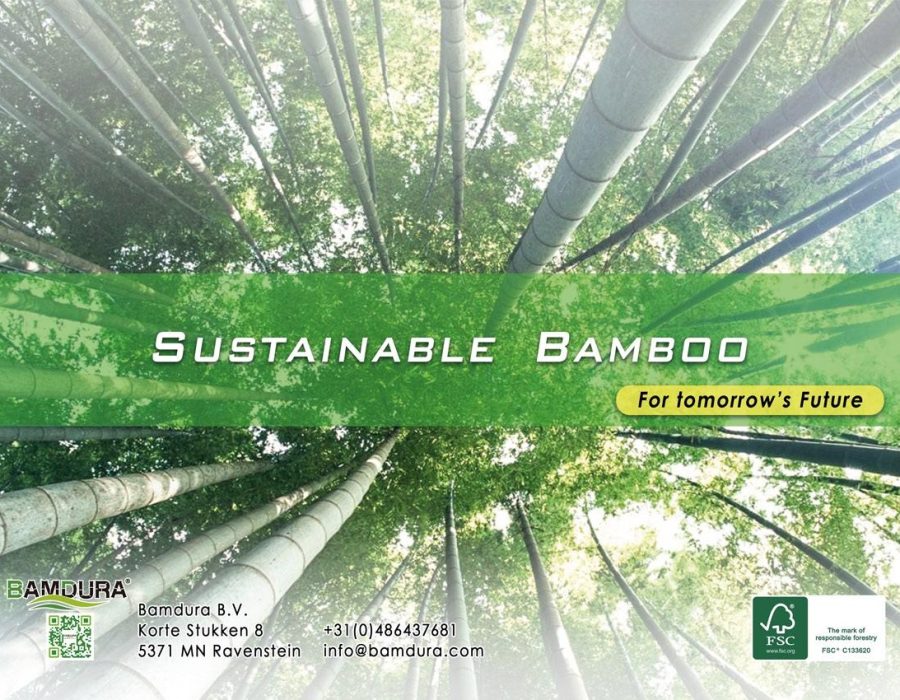
Coastal Custom Products, in partnership with Bamdura, is committed to minimizing environmental impact throughout the supply chain. From responsible sourcing to efficient shipping practices, we ensure that laminated bamboo lumber reaches the U.S. market with minimal waste. Bamdura’s sustainability practices, including their focus on reducing global CO2 emissions, align with our mission to offer eco-friendly building materials that support global sustainability goals.
We also take extra steps to reduce waste during transportation. By shipping our products in tightly packed bundles and avoiding unnecessary packaging, Coastal Custom Products helps reduce the carbon footprint of the supply chain, further supporting SDG 12. This commitment to sustainability extends to our partnerships with distributors and builders, encouraging the adoption of sustainable materials at every stage of the construction process.
Building a Sustainable Future with Laminated Bamboo Lumber
As the construction industry evolves to meet the challenges of climate change, resource depletion, and urbanization, materials like laminated bamboo lumber will play an increasingly important role in sustainable development. By choosing bamboo, builders and architects can reduce the environmental impact of their projects while contributing to the global effort to meet the SDGs.
Laminated bamboo lumber, imported by Coastal Custom Products from Bamdura, offers a renewable, low-carbon, and versatile solution for modern construction. Whether it’s for decking, structural beams, or interior accents, bamboo supports the creation of greener, more sustainable buildings that are better for the environment and future generations.
Conclusion
As we face an increasingly urgent need to shift towards sustainable construction practices, materials like laminated bamboo lumber offer a clear path forward. With its rapid renewability, carbon sequestration potential, and eco-friendly production, bamboo stands as a powerful alternative to traditional building materials. The partnership between Coastal Custom Products and Bamdura ensures that U.S. builders and architects have access to high-quality bamboo products that support the global fight against climate change, deforestation, and resource depletion.
Choosing laminated bamboo lumber is more than just a commitment to quality—it’s a step towards a greener, more sustainable future. By incorporating bamboo into your building projects, you contribute to the achievement of the United Nations’ Sustainable Development Goals, particularly in areas like climate action, responsible consumption, and sustainable urban development. As the construction industry continues to innovate and evolve, bamboo will play a pivotal role in shaping the buildings of tomorrow, helping us all design a future that prioritizes both the environment and human well-being.
At Coastal Custom Products, we are excited to be part of this movement, offering solutions that not only meet today’s needs but also secure a better tomorrow.

